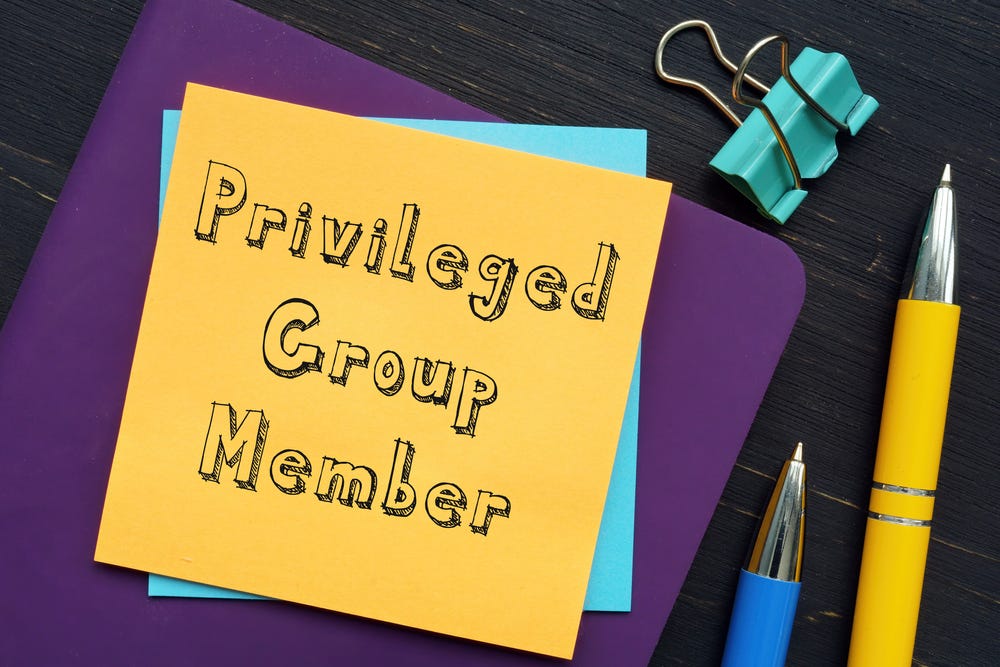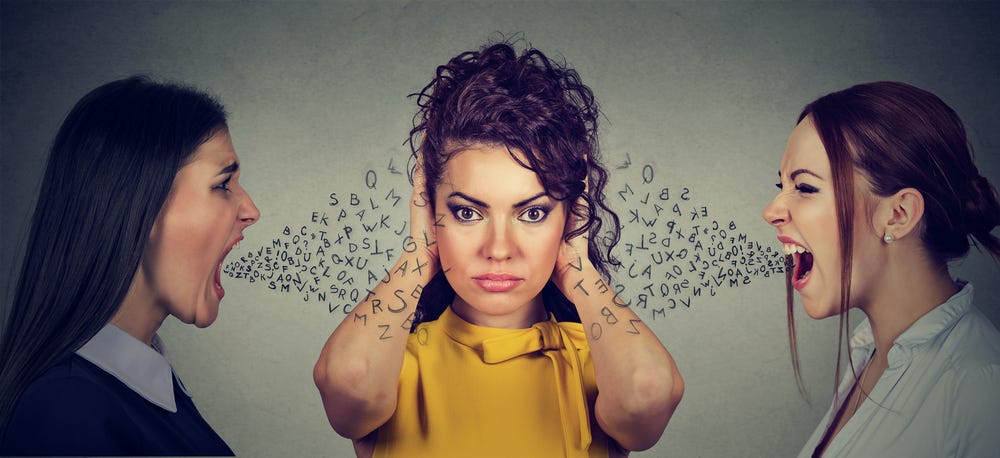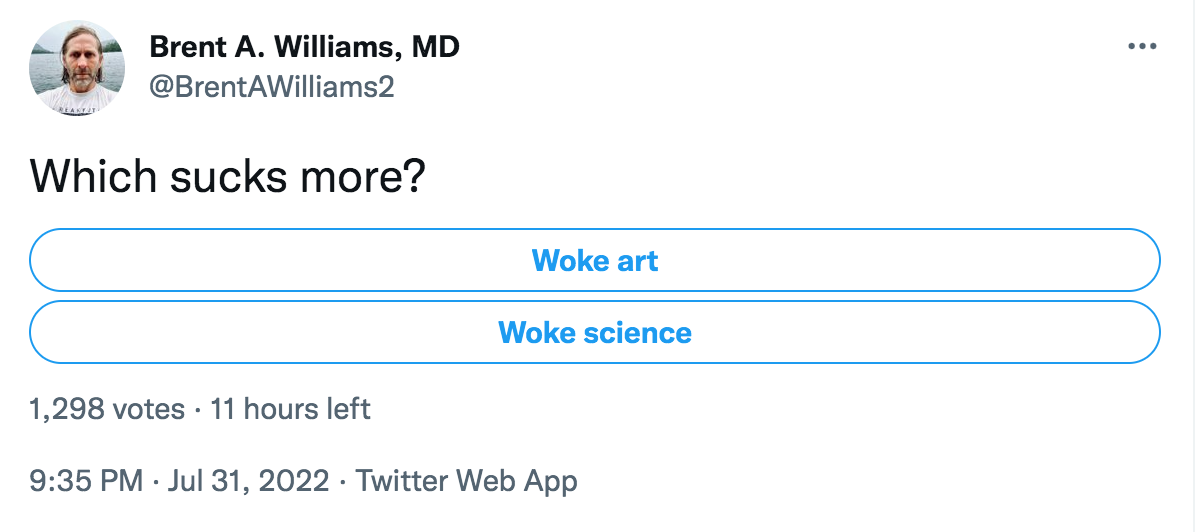E-Pluribus | August 2, 2022
"Privilege" isn't always what it seems to be; government is not our parent; and with friends like this, who needs enemies?
A round-up of the latest and best writing and musings on the rise of illiberalism in the public discourse:
Niamh Jiménez: Against False Privilege
Writing at Quillette, Niamh Jiménez argues that if “oppressed” peoples are to make true progress, a one-dimensional view of prejudice and privilege common in modern activism must be jettisoned. Judging individuals by the groups to which they belong is no way to achieve true equality.
It did not take me long to realize that my “blackness” was widely considered a kind of extenuating circumstance. Almost any offence can be absolved by my presumed entitlement to retributive justice. I am allowed to throw dirt at other nasty children because the world is racist. When black kids grow up, we are loath to name or challenge this exemption in each other—doing so would be seen as the worst kind of disloyalty. Whites do not publicly challenge it (although they resent it in their private circles) because they are possessed by that most potent of all spiritual poisons: white guilt.
These special dispensations are not reserved exclusively for blacks. They are also granted to the disabled and the queer—anyone who tends, by their very existence, to make others feel guilty. Contrary to popular opinion, neither race nor gender nor disability supplies any of us with the right to be violent (outside of the realm of self-defence) nor to demand special treatment outside of those adjustments which are necessary for levelling the proverbial playing field. So long as we are treated as forgotten, marginalized, and disowned, few of us have dared to speak about the particular kind of privilege that status bestows—the privilege of being somehow unimpeachable.
This exemption may look and feel like privilege, but it is a false kind of privilege. The person exonerated of criminal responsibility by “reason of insanity” is not privileged. Rather, they are judged to have the mental development of a child. When someone is given fewer limits than their peers and coddled when they misbehave, they are subject to diminished expectations which preclude equal dignity. Handling the oppressed with “kid gloves”—appeasing and pacifying them, refusing to take them seriously—pathologizes them. In this way, blackness and disability and transgenderism and gender non-conformity and queerness are reduced to impediments. The guilt and pity that these impediments evoke in those not equally impaired are not the same as compassion.
One of the biggest blunders of modern activism is the promotion of guilt and the demand for this kind of false privilege. Progress cannot occur if it is rooted in the idea that the oppressed are inherently impaired. Progress can only occur on the basis of perceived equality. And equality means treating people equally, which includes being held accountable for wrongful actions. It means being taken seriously. But if oppressed people are to be taken seriously by the rest of the world, we have a duty to speak and act in ways that demonstrate a belief in our own worthiness to be taken seriously. Rather than silencing our critics with epithets, we must engage them in rational debate. We must decline the offer of a free pass, secure in the knowledge that we are not insane or childlike and that we are capable of amounting to something equally great. We must hold ourselves to the same standards we expect of others—standards of which we know that we are capable.
Read it all here.
Timothy Sandefur: Pushing Back Against a Permission Society
The Declaration of Independence famously references the “Laws of Nature and of Nature's God” and that all people “are endowed by their Creator with certain unalienable Rights.” Too often, however, writes Timothy Sandefur at Discourse Magazine, we look to government as the source of our rights and thus as the entity to which we must go for permission to pursue happiness (i.e., live our lives, conduct business, etc.). Sandefur say it’s time to rein in government power and restore the default of self-determination.
Laws that force people to get government permission—through a permit or a license—before they can own or do something are usually intended to implement basic safety standards, for example, by ensuring that anyone practicing medicine has the appropriate training first, or making sure that new buildings will be structurally sound before they’re built. But when a government increases the delay and difficulty of obtaining permission, or phrases its licensing requirements in vague, incomprehensible terms, such laws can effectively transform immutable rights into mere privileges that the government can grant or withhold for whatever reason it wants.
The problem isn’t limited to gun rights or the right to build on private property. It’s a pervasive threat, and one the Supreme Court has dealt with before, most notably in a series of rulings in the 1950s that require state and local governments to implement “procedural safeguards” to prevent licensing requirements from effectively nullifying individual rights. But today, those safeguards are routinely ignored by elected officials—as well as by judges. The New York gun decision offers some hope that the Supreme Court may be more diligent in enforcing those safeguards—with respect to all our rights—in the years to come.
Read the whole thing.
Brian Broome: America, where we demonize our enemies and demand purity from friends
While conventional wisdom often leans toward the idea of conservatives being the nasty, mean members of society, liberal Brian Broome writes at the Washington Post that he has incurred the wrath of his own fellow travellers for daring to express admiration for those outside his ideological bubble. Polarization is not just a broad, societal issue; too often individual relationships can rise and fall on differences of opinion that should be fodder for discussion and persuasion, not rejection and ostracization.
In the liberal circles in which I mostly travel, it is nothing short of blasphemy to speak a positive word about any conservative for any reason. Many of my friends can’t even bear to hear their names mentioned. I was reminded of this when in conversation with a friend I mentioned my approval of Rep. Liz Cheney’s performance during the Jan. 6 hearings. I said I thought it was courageous of Cheney (R-Wyo.) to speak truth against the kind of pressure and opposition she’s facing from her party. I said I admired her for it. I don’t love Liz Cheney or plan to send her money or anything. But I figured it was okay to say that what she is doing is good.
My comment was met with a mixture of shock, hurt and outrage — as though I had stabbed my friend in the back. “How can you say that?” he asked, noting that Cheney had opposed same-sex marriage and was a legatee of the father of the Iraq War. When I told him Cheney had since changed her mind about same-sex marriage, he listed a litany of things that she had said or done in the past which put her beyond the realm of acceptable. And in that moment, for him, I had failed the liberal purity test. Because she is one of them.
Conservatives are the same; they hate liberals with an almost otherworldly passion. They like to put bumper stickers on their cars and trucks calling Joe Biden a communist; they have convinced themselves that the blue cities and states they despise are hellscapes of crime and desolation. They have made demonizing Kamala D. Harris, Nancy Pelosi and Hillary Clinton a kind of obsession. In that world, saying anything complimentary about a Democrat is a marker of probable evil.
Read it all.
Around Twitter
Via The Atlantic, David French with some thoughts on online behavior, second chances and forgiveness:
A short discussion: which is worse, woke art or woke science?
And finally, the U.S.’s premier civil rights organization comes out in favor of . . . racial discrimination:











